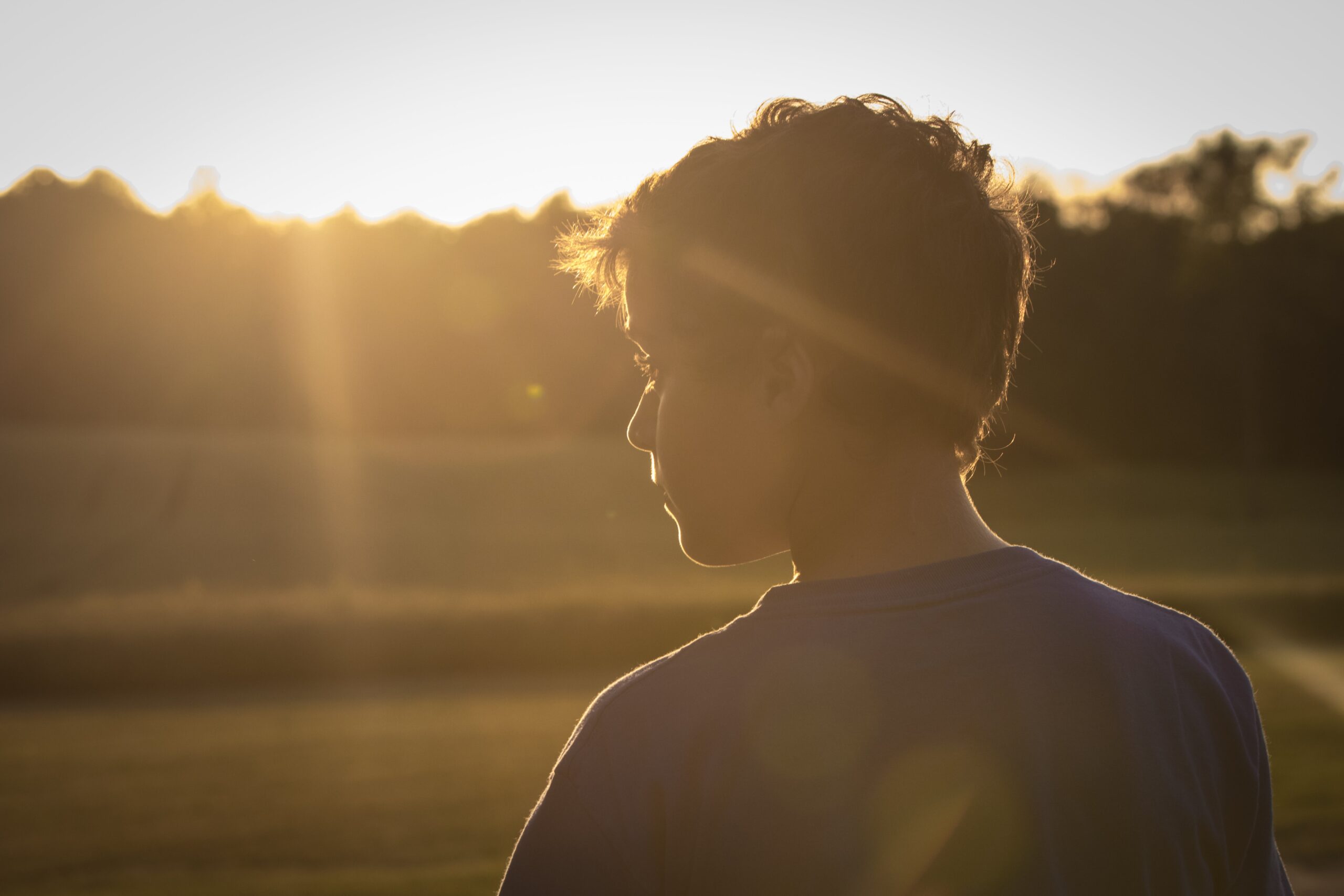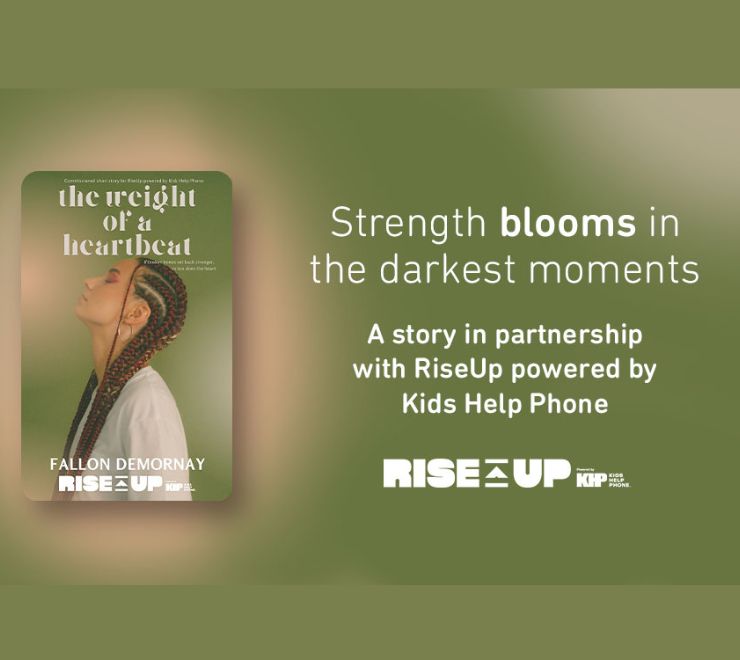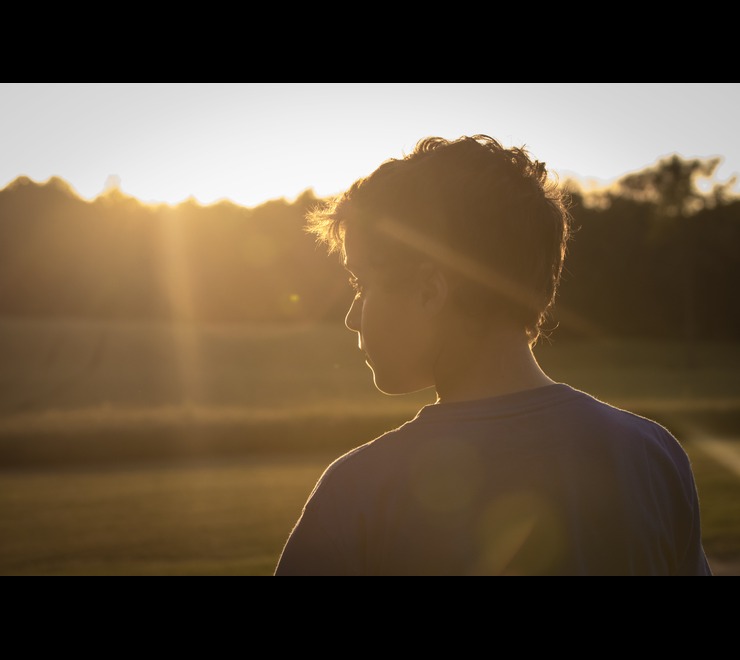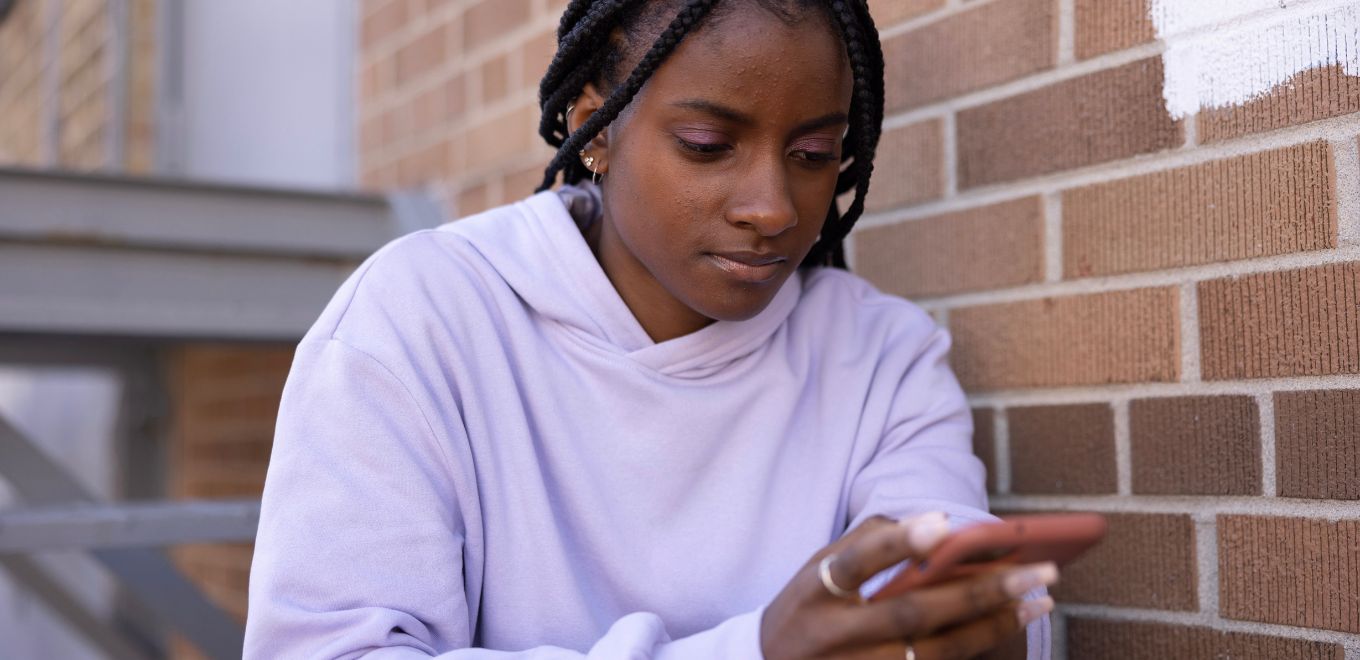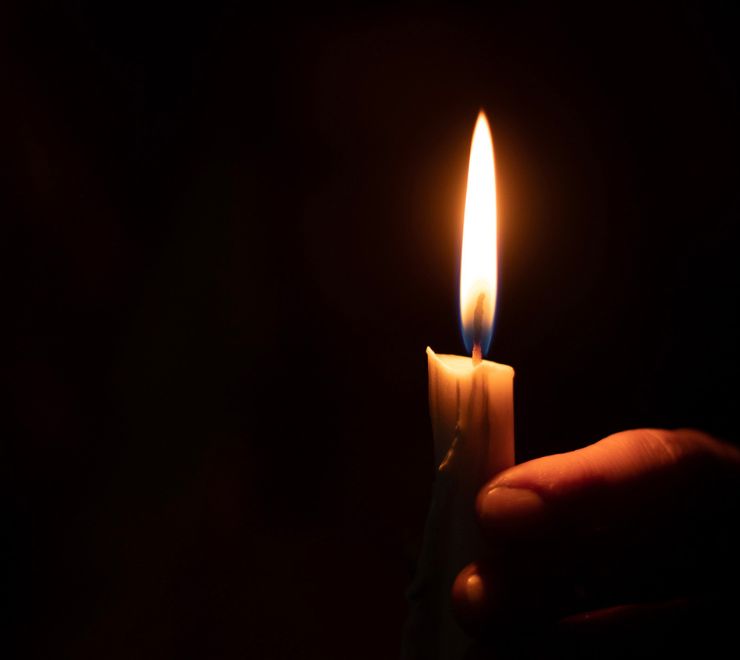Kids Help Phone is here for you during the COVID-19 pandemic. Emergency services and child protection services are still available across Canada and mobile crisis support is also available in some areas. No matter what, your safety is a priority — it’s important to find ways to protect yourself, even while practising physical distancing.
If you’re living with abuse, it’s important to know that you’re not alone — help is available.
Living with abuse is very hard. Kids and teens in abusive situations experience a great deal of stress every day. They may feel trapped or like there’s nowhere to turn. They may not know whom they can trust.
If things have been rough at home for a long time, you may have become used to it. The abuse may feel almost normal — you accept it as just another part of your day. This can be a way of coping — if you accept the abuse as normal, it feels less upsetting. But deep down, you know that what’s happening isn’t right.
These feelings are common for young people living with family abuse:
- sadness
- guilt
- fear
- anger
- shame
- confusion
- hopelessness
- helplessness
- betrayal
- rejection
- worthlessness
Negative ways to cope with abuse
Not getting the love or care you deserve can change the way you think. Some young people try negative coping mechanisms, such as engaging in self-injury or drug and alcohol use. Although these may make you feel better in the moment, they can make you feel worse overall. Negative coping strategies mask your feelings without fixing the problem.
Abuse is NOT your fault
It’s important to understand that what’s happening at home is not your fault. Write that down and put it someplace where you’ll see it every day. Don’t blame yourself for what’s going on. Even if you’re told that the abuse is a “punishment” for something that you’ve done “wrong,” you don’t deserve it. No one deserves to be abused or neglected.
Talk to someone
You can’t control what happens in your family, but you can choose how you respond to it. The best way to take control is to talk to someone about it. It may feel impossible, especially if you’re worried that talking about it will make things worse, but here’s what you can do:
- Get help: you can’t overcome abuse by yourself. You need help to make things better.
- Talk about it: it’s important to tell a safe adult — someone who isn’t causing the abuse. You can also call Kids Help Phone to talk to a counsellor confidentially and anonymously (without telling us your name) or text a volunteer crisis responder confidentially. If you want us to, we can help you call the emergency services in your area or child protection services.
- Be prepared: the person you tell should take you seriously and want to help you right away. If they don’t want to get involved, you need to tell someone else. Don’t wait for things to get better on their own.
Not ready to talk yet?
Young people who live with abuse often feel conflicted and confused. They know that things aren’t right, but they don’t feel ready to tell someone what’s happening.
Sometimes, young people don’t want to talk about abuse because they feel guilty. They may feel like they’re betraying their parents or caregivers by asking for help. They may also be worried about practical things, like being separated from their siblings, or in certain cases, being deported.
It takes a lot of courage to talk about abuse, so take the time you need. Until you’re ready to talk, here are some things you can do to stay safe and prepare for the next step:
- create a safety plan
- get involved with hobbies
- identify and build your social support network
- connect with people who you know you’re safe with
Staying safe
Keeping yourself safe is important, even if you’ve already told someone about the abuse and you’re getting help. This may mean avoiding certain family members or calling the emergency services in your area when you feel like you’re in danger.
It’s also important to be emotionally safe. This may mean not exposing yourself to situations that make you feel uncomfortable, or staying away from unsupportive friends. It’s a good idea to make a plan for your own safety.
If you need more support, please call Kids Help Phone at 1-800-668-6868.
Calling the police or child protection services
If you’re being hurt at home, it may be time to call the emergency services in your area or child protection services.
If you’re worried about making the call, it may help to have a friend or safe adult with you when you do. You can also call Kids Help Phone and ask a counsellor to help you. They can make the call for you or walk you through it.
Calling the police
The easiest way to call the police is to dial 911. While you’re on the phone, the following may occur:
- The operator will ask if you want police, fire or ambulance services. Say that you want the police.
- The operator will ask for your name, address and phone number.
- They may also ask you for your age.
- They will ask you to explain a little bit about what’s happening. For example, if you or someone in your family is getting hurt, say so. Do not hang up.
Calling child protection services
Child protection services helps young people who are living with family violence. It’s a good idea to phone them if things are bad at home. To find the number for child protection services in your area, search the term “child protection services” on Resources Around Me. If you have an emergency (e.g. someone is getting hurt at that very moment) call 911.
These child protection services may also be called:
- Children’s Aid Society (CAS)
- child welfare
- child and family services
- social services
Should I call child protection services?
If you’re experiencing abuse or neglect at home, you can call child protection services. Even if you’re not sure that it’s abuse or neglect, you can call child protection services for advice. You can also call them if you know someone else who is experiencing abuse or neglect.
Here’s what you can expect when you call:
- The first person you speak to will likely be an intake worker. This person will ask you about what’s going on so that they can learn more about your situation. You may be asked to give your name and other identifying information, but you don’t have to if you don’t want to. However, the child protection agency may have caller identification.
- The intake worker will talk with you to decide what to do. If they think you’re in immediate danger, a child protection worker will come right away, or they may send emergency services in your area.
- If you aren’t in immediate danger, the intake worker may make a plan to meet with you at a later time. They may also do an investigation. This means that they may want to speak with your parents or caregivers, relatives, teachers, doctor or other important people in your life. You can ask that they don’t tell others that you’re the one who called. If you need medical attention, the intake worker will make sure you get it. In some cases, they may also involve the police.
- Child protection services will try to get you the support you need to be safe. This may mean that you stay at home with your family while your family gets support (e.g. counselling). A worker from child protection services may stay involved with your family for a while, visiting regularly to see how your family is doing and checking in to see that you’re safe.
- If it’s not safe for you to stay at home, you may be placed somewhere else, such as a relative’s home, a group home or foster care. The goal is to make your family a safe place so that you can return home.
Calling child protection services anonymously
It’s possible to call child protection services to ask for advice or information anonymously. You may want to remain anonymous if you don’t feel ready to report the abuse yet, or if you just want to find out what may happen if you make a report.
If you call anonymously, the intake worker may ask for information like your name, address or school. They may tell you that you should give these details. If you do, and if they think that there is abuse in your home, they must intervene. This is true even if you talk about a situation as if it’s hypothetical. (For example, “If someone’s parents did ‘X,’ is it abuse?”)
The child protection agency may also have caller identification. So, even if you don’t give your name, they may choose to investigate.
During your anonymous call, it’s important that you try to do what feels right for you. If you don’t want child protection services to get involved yet, you can say “no” and not give them any information.
What if I want to keep living at home?
Child protection workers understand that most kids and teens want to stay at home, even if they’re experiencing abuse or neglect. They try to make this happen whenever possible. A child protection worker will take you away from home only if they believe that it isn’t safe for you to stay. They must explain their decision to a judge, and you have the right to see a lawyer to have your voice heard as well.
If I call, will my parents or caregivers find out?
Your parents or caregivers will find out that someone called child protection services if a worker gets involved. The child protection worker won’t necessarily identify who contacted them, especially if you ask them not to. If it’s important to you that your parents or caregivers not find out, ask the intake worker not to identify you. If the courts become involved, your confidentiality can’t be guaranteed.
What happens next?
After you talk to someone about what’s been going on, things at home may not get better right away. You’ll need some time to adjust, depending on what is decided and who is involved in the process. Try to take things one day at a time and remember why you spoke out in the first place.
Taking care of yourself
It’s always important to take care of yourself, especially when there’s a lot going on. Here are some ideas:
1. Be kind to yourself
Saying nice, positive things to yourself can help you feel reassured and safe. It may help to write these things down and keep them close to you so that you can read them when you feel discouraged. Here are some examples:
- “I am not a bad person.”
- “I wasn’t hurt because I was bad.”
- “It’s not my fault.”
- “I don’t deserve to be abused.”
- “Things will get better.”
2. Make a list
Write down the positive things that have happened because you asked for help. This list can help you remember why you spoke out and give you hope for a happier future. Here are some examples:
- “I was living with abuse, and now I’m not.”
- “Being away from the abuse helps me build relationships that are free of abuse.”
- “Being away from the abuse helps me work on my self-esteem.”
- “Speaking out means that my life has more hope.”
3. Keep yourself busy
Making sure that you have lots to do can help keep your mind off of what’s happening. Here are some ideas:
- Keep up with your studies: try to avoid skipping your classes or dropping out. School can help you focus on the things that you can look forward to in life, like your favourite subjects or connecting with others (whether virtually or while practising physical distancing).
- Get active: doing safe, fun activities/exercises (virtually or — where available — in person) you enjoy can help you feel better.
- Keep a journal: keep track of what you feel from day-to-day, whether you’re angry, sad, confused or happy. Try not to judge yourself for these feelings. Your emotions are yours, and you don’t have to share them with anyone.
- Connect with friends: call a friend and make plans. Connecting with friends (virtually or while practising physical distancing) can help you feel better and more supported, and spending time with people who care about you is really good for your self-esteem.
4. Build on your strengths
Everyone is good at something. Doing the activity you’re good at more often can help you deal with your feelings and build your self-esteem.
5. Talk to someone
If you’re struggling with your feelings, or if you just need to talk, you can always call Kids Help Phone’s professional counsellors at 1-800-668-6868 or text a crisis responder at 686868. You can also contact someone else you trust, such as a relative, friend or anyone else you feel comfortable with. You don’t have to handle things on your own and you’re not alone.
